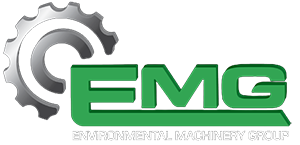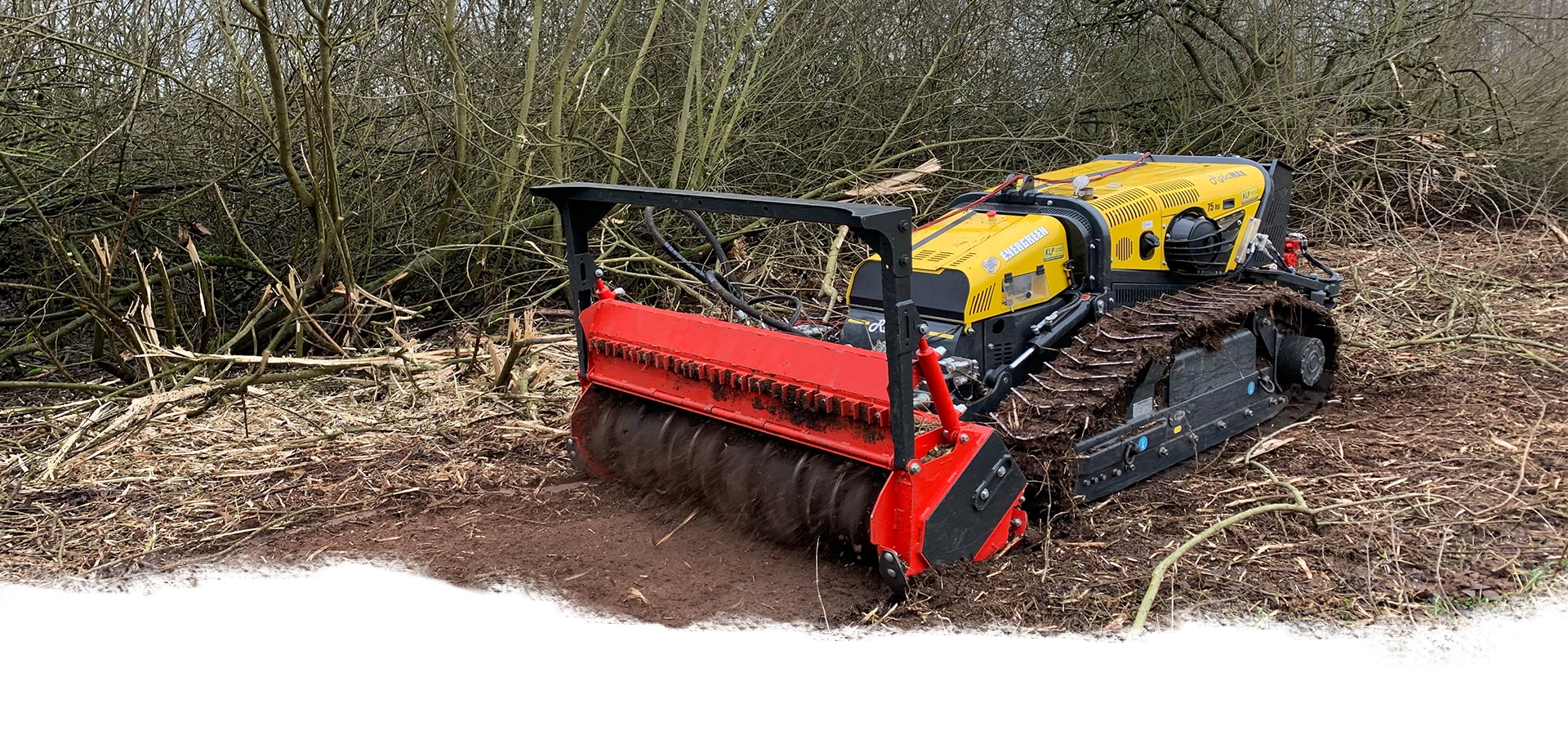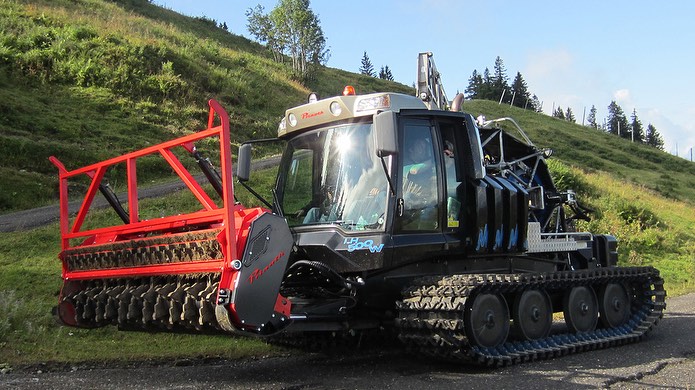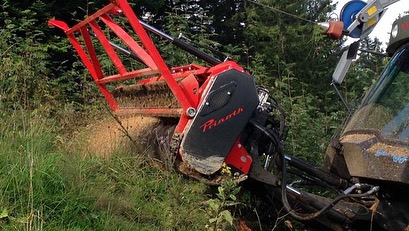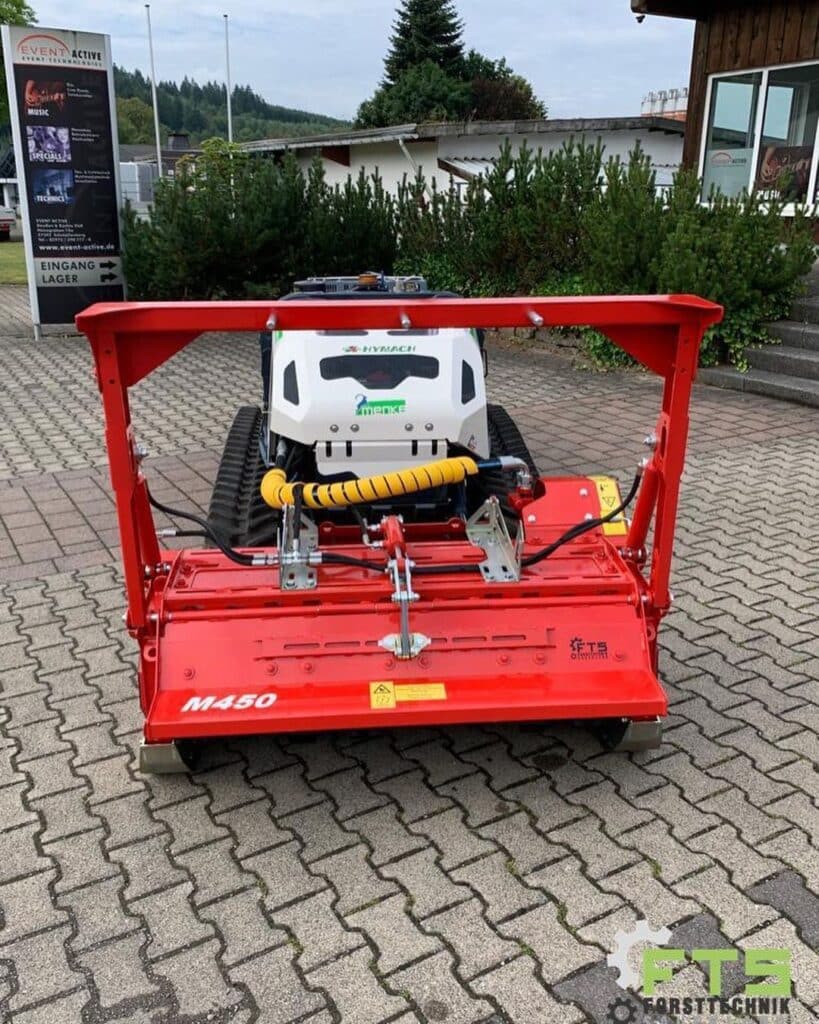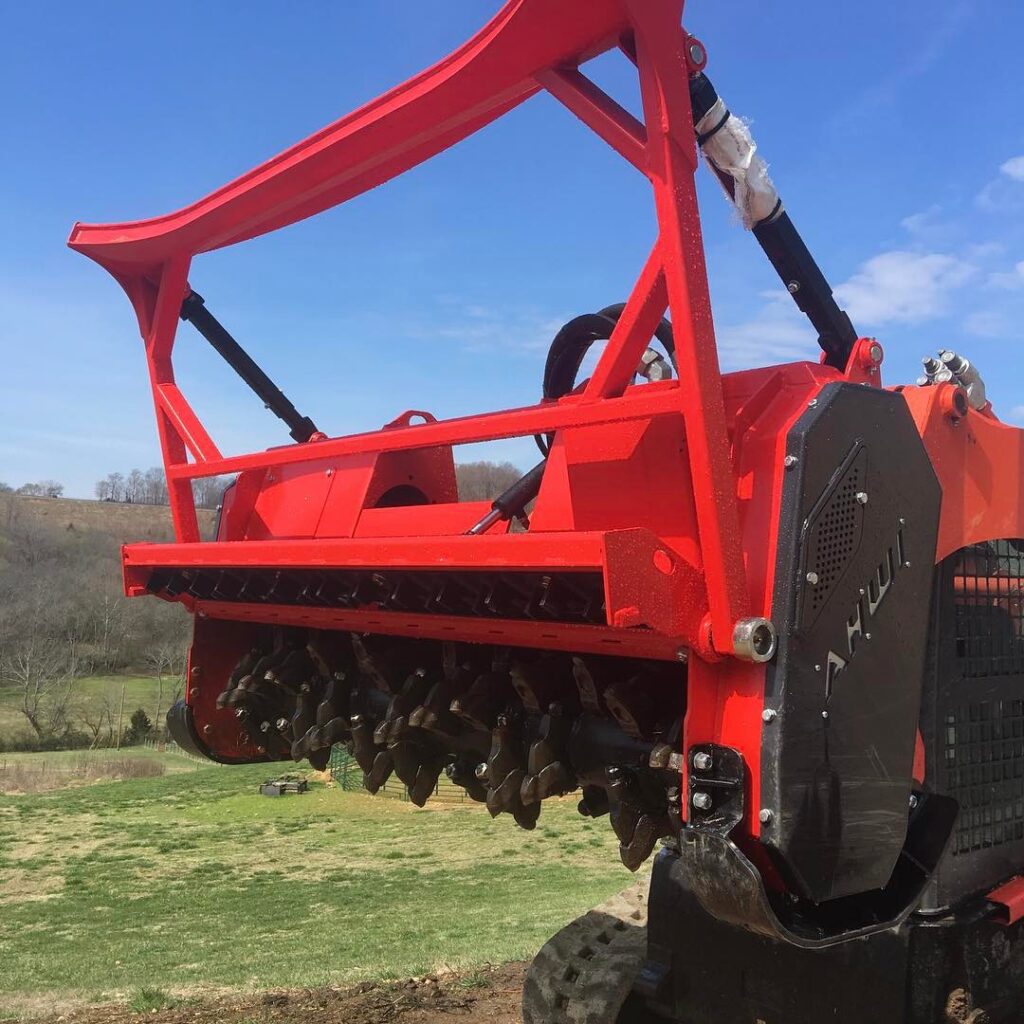M450H
The M450h- 1250-1350-1450 is a lightweight brush mulcher that has been specially developed as an attachment for remote controlled carriers with a volume flow from 14.5-29 gpm (55-100 l/min).
The new M450 series is a lightweight brush mulcher that has been specially developed as an attachment for remote controlled carriers like Energreen, MDB, Robocut and many others. The mulcher is also suitable for mini skid steers with standard flow, i.e. on boom arms or as an attachment to wheel loaders.
It combines many details, which add up to a perfect cutting, easy handling, low maintenance and high productivity at low power demand.
All the different counter blade levels enable to have a smooth and light cutting with a good finishing but at the same time avoiding having big pieces of wood inside the housing stalling the rotor.
Technical Data
| Power range [hp] - Volume flow [gpm] | 54-90 - 14.5-29 |
| Working width [in / mm] | 49.2 / 1250 - 53.1 / 1350 - 57 / 1450 |
| Overall width [in / mm] | 57 / 1450 - 61 / 1550 - 65 / 1650 |
| Weight* [lbs / kg] | 1014 / 460 - 1124 / 510 - 1191 / 540 |
| Tools quantity | 26xBCS - 28xBCS - 30xBCS |
| Rotor diameter | 450 mm / 17.7 in |
| Note | Technical changes made during the course of further development are reserved. *Weight information refers to the configuration without push bar and without counter blades installed on the flap. |
Your advantages at a glance

Shredding Quality
Highest shredding quality of the mulched materials.

Service Life
Long service life of the machinery and drive shaft thanks to oversized dimensions and the patented synchronization control.
Application Areas
Infrastructure measures
Infrastructure measures are any measures that are used to build and maintain infrastructures. Among other things, those include complete or selective clearing or land management in preparation for infrastructure construction work.
Furthermore, it also includes infrastructure maintenance and clearing around existing installations. That includes street and road construction and the expansion of rail networks or airports.
Forestry
The forestry industry requires reliable, sturdy and productive work tools to extract lumber from harvested areas.
In this way, PRINOTH’s crawler carriers can be equipped with forestry implements such as a forwarder, telescopic high line mast (yarder) or chipper. With its low ground pressure and outstanding climbing ability, the crawler carrier provides an exceptional work solution while offering advanced safety features, particularly important in the forestry sector.
Land clearing
The phrase “land clearing” involves a range of different applications and terms. In many cases, site clearance refers to secondary vegetation and for construction clearance. This may involve forest clearance for areas intended for use such as wind farms, parks, road construction or golf courses.
It may also include applications such as the removal of windblown timber or burnt areas, preparation work for surface mining and of equal importance, amenity areas. Site clearance can also be considered in plantations, arboretums, horticulture and landscaping.
When clearing large areas, no selective mulching takes place, as large areas or parcels with a range of different types of vegetation are processed by the mulcher. In many areas of the world, other methods are used for the same purpose, such as slash and burn, chaining or simply bulldozing the area. When these methods are used, vegetation is uprooted by bulldozers or stretched chains, and then burned or buried. In contrast to these methods, mulching is the process with the lowest degree of intervention in the ecosystem. Whether mulchers or rotorvator are used, the shredded biomass remains and greatly improves the fertility of the soil.
Reclamation
Recultivation is the exploitation of land for economic purposes, such as plantations or agriculture. Soil preparation is a common feature of this process.
In many cases, re-cultivation is closely related with the clearance of large areas or forest clearance and also the shredding of stumps and root material. This can either involve secondary vegetation or trees. A mulcher is used to process vegetation on the surface. A rotovator is then used to deal with any remaining vegetation or stumps which are still in the ground, which are then combined with the mulched material and mixed into the soil.
